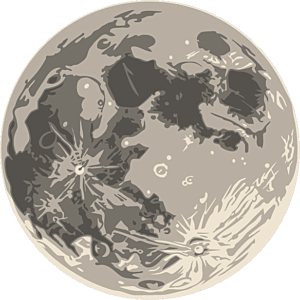The Downlink • Mar 01, 2024
Lunar success stories
Space Snapshot

A U.S. spacecraft has landed on the Moon for the first time in over 50 years. This image captures the moment when the Odysseus lander touched down near the lunar South Pole, where no mission had ever landed. The trip was no easy feat — Odysseus landed without a crucial instrument able to guide it, and the spacecraft tipped over on its side in a way that limited communication and science operations. The private company that built Odysseus, Intuitive Machines, managed to eventually establish contact with it after landing. Image credit: Intuitive Machines.
Fact Worth Sharing

Odysseus has brought a lot with it to the Moon. The spacecraft carries a nanoscale etching that contains thousands of languages, songs, and pieces of art, as well as the secrets to some of David Copperfield’s magic tricks and the entirety of Wikipedia in English.
Mission Briefings


It’s time to name that asteroid! Again! While the Hayabusa2 spacecraft (pictured) makes its way to rendezvous with an asteroid, JAXA is hosting a competition to name its destination. The asteroid, which currently has the temporary designation 2001 CC21, became Hayabusa2’s next stop after the probe successfully visited asteroid Ryugu and dropped samples back to Earth. The contest ends May 9, and Hayabusa2 will arrive at the asteroid in 2026. Image credit: German Aerospace Center (DLR).

SLIM has survived the lunar night. JAXA’s SLIM spacecraft had already beat the odds once when it accomplished all its mission goals despite landing upside-down. Now it has defied expectations again by making it through the cold lunar night. After going 14 days without sunlight and enduring temperatures sometimes lower than -130 degrees Celsius, SLIM responded to a wake-up call and continues to study the Moon.

India has chosen astronauts for its spaceflight program. ISRO revealed the group of astronauts who will crew India’s Gaganyaan-1 mission, which aims to inaugurate the country’s entry into human spaceflight with a week-long journey in Earth orbit. The four astronauts are far from India’s first — Indian nationals and U.S. nationals of Indian descent have been to space as part of U.S. and Soviet space programs — but the crew still marks a milestone for India’s future in space.
From The Planetary Society


Can SpaceX’s Starship save Mars Sample Return? With NASA’s budget still uncertain, it’s tempting to consider whether technology like Starship can provide a way forward for Mars Sample Return. We took a closer look at the mission’s science and found alternatives probably aren’t practical — which means our communal efforts to support the mission make all the more difference.

Red Rover went to Mars. Join Abigail Fraeman, deputy project scientist for NASA’s Curiosity rover, and Courtney Dressing, associate professor at the University of California at Berkeley, on this week’s Planetary Radio to hear about the impact our collaboration with NASA and Lego made on a generation of scientists and space advocates.

We’ve got tips on hosting an eclipse party. The April 8 total solar eclipse is only weeks away, and our guide can tell you everything from how to pick a viewing spot to what songs are perfect for your party playlist. Learn how to make a pinhole projector, find your eclipse glasses, or check out a map of the eclipse’s path.

Speaking up for your place in space. We make it our mission to advocate for space exploration on behalf of our community. This past week, our senior communications adviser Mat Kaplan and board secretary Jim Bell each spoke on CNN to emphasize the historical importance of the Intuitive Machines lunar landing, while our president Bethany Ehlmann wrote an op-ed arguing in support of Mars Sample Return.

Snuggle up with a new space book. Join our digital community’s Book Club as we read “Space Shuttle Stories,” a collection of over 100 interviews with astronauts written by shuttle astronaut himself, Tom Jones.
What's Up

Look for Jupiter shining bright in the evening west. Even brighter Venus and much dimmer, reddish Mars are a challenge to see, with both extremely low in the pre-dawn east. A thin crescent Moon joins them on March 7 and 8.
Shop for the Eclipse

Now's the time to grab your eclipse-related T-shirts, mugs, posters, and more! You can purchase swag or bid on stellar packages, all while supporting The Planetary Society. Your bid supports our mission to advance space science and exploration. The auction closes on Friday, March 8, at 12:00 p.m. ET — start shopping now!
Wow of the Week

In 1987, scientists witnessed the closest supernova since the invention of the telescope. Though they have picked over the remains of the stellar explosion many times since, a mystery remained unsolved: what was left over afterward? A black hole, or a neutron star? This image of the supernovae’s blast clouds, taken by JWST’s NIRCam instrument, has finally provided solid evidence that a neutron star lies at the heart of the explosion.
Send us your artwork!
We love to feature space artwork in the Downlink. If you create any kind of space-related art, we invite you to send it to us by replying to any Downlink email or writing to [email protected]. Please let us know in your email if you’re a Planetary Society member!


 Explore Worlds
Explore Worlds Find Life
Find Life Defend Earth
Defend Earth

